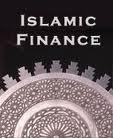 The kingdom of Saudi Arabia has always been a little unusual when it comes to Islamic finance and banking. Banks that were otherwise quite conventional, and which both paid and received interest, were proclaimed to be Islamic because ‘all banks in the kingdom are Islamic’. Since the KSA plays such an important place in Islam, being home to Mecca and other holy sites, it was felt that it would give off the wrong message if any banks were seen to be conventional.
The kingdom of Saudi Arabia has always been a little unusual when it comes to Islamic finance and banking. Banks that were otherwise quite conventional, and which both paid and received interest, were proclaimed to be Islamic because ‘all banks in the kingdom are Islamic’. Since the KSA plays such an important place in Islam, being home to Mecca and other holy sites, it was felt that it would give off the wrong message if any banks were seen to be conventional.
The introduction of a truly Shari’ah compliant mortgage law in KSA, therefore, was always going to be a slow train coming but it appears that it has now happened. On Monday of this week Saudi Arabia’s cabinet approved its first ever mortgage law – partly prompted by concerns of popular unrest sparked by the surrounding Arab Spring – and partly prompted by a desire to address issues of regional economic imbalances.
The mortgage law has been on the drawing board for some years – over 30 years by some estimates – and the main stumbling block to its introduction seems to have been the issue of whether or not it would be fully Shari’ah compliant. The core point of contention seems to be that senior Shari’ah scholars believe that interpretation of the Shari’ah should be left to individual scholars to interpret as they see fit – and not codified into law. The law was approved as far back as 2008 by the Shura Council but the final draft was left for review and was only ratified this week.
The ramifications of this development for KSA could be enormous – and could also provide a useful fillip for the global Islamic finance market. KSA is estimated to need somewhere in the region of 1.5m new affordable housing units over the next few years. KSA has long had a lack of housing and a more acute lack of affordable housing so this development could be a game-changer in terms of the economic development of the nation.
There is also a question mark over how the kingdom’s financial services industry will respond to this development. To date the banking sector has been tightly regulated and foreign banks can only participate in the form of JVs with established Saudi banks. It seems likely that these banks rather than standalone Islamic home financing companies will issue the bulk of any new Islamic mortgages.
From a practical point of view Islamic home financing companies have to find a cheap source of capital since, without a banking license, they are unable to accept the automatic salary deposits that regulated banks can use to fund mortgages. The experience of Islamic home financing entities in the UAE where the mismatch between borrowing and lending terms caused havoc during the real estate bubble crash could hold some salutary lessons for any potential lenders in the kingdom.



